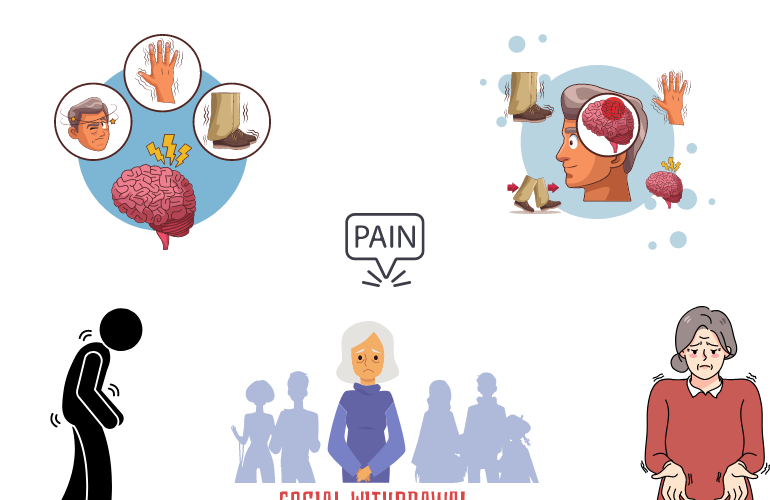Information about Parkinson's Disease
Parkinson's disease is a chronic, long-term condition that affects each individual differently. It can be frightening to learn that you have Parkinson's disease, but there are many things you can do to live well and feel in control of your daily life. Continue reading to learn more about Parkinson's disease, including its causes, stages, symptoms, treatments, and support, as well as what you can do to manage it.
Sort the articles below by category

What is Parkinson's
About-Parkinson's Parkinson’s disease is a complex and long-term condition that affects each person differently. Learning that you have Parkinson’s can be frightening but there are lots of things you can do to live well and feel in control of your daily life. Keep reading to discover more about Parkinson’s disease, including the causes, stages, symptoms, treatments, support and what you can do to manage the disease. About Parkinson's disease
Symptoms of Parkinson’s disease
Treatments There are many signs and symptoms of Parkinson’s disease but you’re unlikely to experience all of them. Symptoms are mild at first and develop in stages over several years. They range from a tremor and slowness of movement to problems with sleep and mental health. Notwithstanding, making some lifestyle changes alongside any treatment you are able to access can help control your symptoms so you can still enjoy a good quality of life. constipation disease dementia gait hallucinations motor symptoms fainting freezing rigidity urinary incontinence symptoms falls common
Diagnosing Parkinson’s disease
About-Parkinson's Parkinson's disease is usually diagnosed by a neurologist (a doctor who deals with conditions affecting the brain, nerves and spinal cord), a geriatrician (a doctor who specialises in the care of older adults) or a specialist physician, after a clinical assessment. Your doctor will build a picture of your symptoms using lots of different approaches. Factors such as your age, your symptoms, your medical history and access to healthcare where you live can all impact how quickly you’ll get an accurate diagnosis. Parkinson’s disease, How would I know
Stages of Parkinson’s disease
About-Parkinson's If you or a loved one has been diagnosed with Parkinson’s disease, you might probably be wondering what the future holds. Parkinson’s is a progressive disease - meaning that it gets worse over time, but how Parkinson’s disease progresses won’t be the same for everyone. You won’t experience it the same way as someone else with Parkinson’s. So, the outlook varies from one person to another. Stages, advanced parkinson's disease, how long does it take for parkinson's disease to progress, late stages of parkinson's disease, parkinson's disease progression, dementia in parkinson's disease, end-stage parkinson disease life expectancy, parkinson's disease end stage, parkinson's disease quality of life, what is the outlook for someone with parkinson's, first signs of parkinson's disease, parkinson's disease fatal
Causes of Parkinson’s disease
About-Parkinson's We’re not sure exactly why some people get Parkinson’s disease. However, research has found that people with Parkinson’s don’t have enough of a chemical called dopamine in the brain, which helps control movement. We also know certain cells in the brain stop producing dopamine, although we don’t know why. It could be down to a combination of factors that alter your chance of develo idiopathic parkinson's disease hereditary gene therapy disease genetic gut
Young onset Parkinson's disease
About-Parkinson's young onset Parkinson's life expectancy young disease symptoms Young onset Parkinson's disease
Newly diagnosed with Parkinson’s disease
About-Parkinson's If you’ve just been diagnosed with Parkinson’s disease, it can feel like a huge shock. It may trigger a range of emotions including confusion, sadness, anger and fear. You may have lots of questions about the condition and the impact it’s going to have on your life, relationships and work. You may also be concerned about telling your friends, family and employer about your diagnosis. Read on for advice about coping with a diagnosis of Parkinson’s disease and how to move forwards as you process having the condition. new newly parkinson's disease progress medication outlook quality life living early onset long term effects
Treatment for Parkinson’s disease
Treatments There is currently no cure for Parkinson's disease, but scientists are actively working to find disease-modifying therapies, and a cure. Treatments for Parkinson's, cbd oil, levodopa, can parkinson's disease be cured, management of parkinson's disease, drugs for parkinson's disease, when should you start medication for parkinson's disease, operation for parkinson's disease, parkinson's disease surgery, best treatment for parkinson's disease
Living with Parkinson’s disease
Living-Well Summary: While your experience of living with Parkinson’s disease is unique to you, there are some general steps that you can take to live well and feel more in control of your life. We will explore the different ways in which you can continue to enjoy a good quality of life after your Parkinson’s diagnosis. Living, Parkinson’s disease
Physical exercise and Parkinson’s disease
Living-Well Exercise is particularly beneficial for you if you have Parkinson’s disease. It can improve the quality of your life and may even help slow your condition down. From mind-body exercise like dancing to aerobic sports and simple home workouts, getting active can help control your symptoms and give you more independence. Exercise is also recommended as a treatment because it gives you neuro (brain) protection. best exercise Parkinson's disease exercises physical
Diet and Parkinson's
Living-Well Having a healthy diet can help you manage some of your Parkinson’s symptoms and support your overall health. There isn’t a specific diet that can treat Parkinson’s disease or reverse it, but some changes to what and how you eat may help improve your symptoms. Learn more about healthy eating habits, if there are any foods you should avoid, and how to deal with common diet-related complications of Parkinson’s, such as constipation. diet Parkinson’s disease foods help constipation fruit veg heart health therapeutic levodopa swallowing
Mental health disorders and Parkinson’s disease
Living-Well Mental health disorders such as depression, anxiety, memory problems, etc., are commonly experienced by people living with Parkinson’s disease, but there are ways to manage them. Mental health disorders can happen for several different reasons if you’re living with Parkinson’s disease. You may experience issues because of the changes in your brain caused directly by Parkinson’s, or due to the emotional stress of dealing with your diagnosis. Mental health and Parkinson's, anxiety, apathy, depression, hallucination, memory loss, thinking problem, cognitive difficulty, dementia in parkinson's disease, effects of parkinson's disease , hallucinations in parkinson's disease, parkinson's disease quality of life, young onset parkinson's disease
Women and Parkinson's
Living-Well Being diagnosed with Parkinson’s disease or thinking you might have symptoms will no doubt come as a shock. Women have a lower risk of Parkinson’s disease than men, but can still develop the condition. The disease can progress differently in women, so you may have different symptoms and respond differently to treatment. females Parkinson's disease early signs young onset motor symptoms
Caring for someone with Parkinson's
Caring Caring for someone with Parkinson’s disease may be challenging, especially as the disease progresses. Aside from all the practical ways you can help, such as helping with medications, for example, you’ll need to properly understand the disease and what your loved one is going through. Support people Parkinson’s Africa drugs disease exercises facts living with
Myths and misconceptions about Parkinson’s disease
Myth-Busting Across many parts of Africa, false information and a lack of understanding about Parkinson’s disease can cause those affected to feel excluded or misunderstood by their communities. A lot of the prejudice and hostility they face is as a result of the myths and misconceptions surrounding Parkinson’s disease. If this is something you’ve experienced, it could be because of these myths about Parkinson’s symptoms. Learn more about the common misconceptions about Parkinson’s disease and what the actual facts you should know are. Myths, misconceptions, Parkinson’s, disease, witchcraft, mental illness, age, cure, stigma, stigmatisation, witch, Parkinson’s disease can be cured with herbs or through alternative medical practices, All Parkinson’s disease symptoms are movement related, Parkinson’s disease is “an old person’s” disease, Parkinson’s disease can be transferred from person to person, Parkinson’s disease is terminal, Parkinson’s disease is a result of being a witch or being cursed, or because of a spiritual problem, A person with Parkinson’s cannot live a good life
Disclaimer
This website's content is intended to assist anyone seeking advice, support, or information. The information on this site or other sites mentioned should not be used to replace professional medical advice. It is everyone's responsibility to seek the advice of qualified medical professionals when necessary.